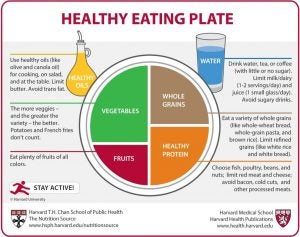About HPFS:
The Health Professionals Follow-Up Study (HPFS) began in 1986. The purpose of the study is to evaluate a series of hypotheses about men’s health relating nutritional factors to the incidence of serious illnesses, such as cancer, heart disease, and other vascular diseases. This all-male study is designed to complement the all-female Nurses’ Health Study, which examines similar hypotheses. The HPFS is sponsored by the Harvard T.H. Chan School of Public Health and is funded by the National Cancer Institute. Learn More About HPFS.
90% Questionnaire response rate!
The Nutrition Source

News and Recent Research Highlights
- The role of sodium or “salt” in the diet for heart disease prevention has been long debated by scientists. A new study conducted by HPFS investigators provides strong evidence that limiting sodium and increasing potassium leads to better cardiovascular health. Read More
- A higher intake of phytoestrogens, including isoflavones, lignans, and coumarins, and foods rich in these compounds was associated with lower risk of total and certain cause-specific mortality in generally healthy US adults. Read More
- Zinc supplementation of more than 75 mg per day or over 15 years may substantially increase future risk of lethal and aggressive prostate cancer. Caution is warranted regarding excessive usage of zinc supplements among adult men. Read More
- Higher avocado intake was associated with lower risk of cardiovascular disease (CVD) and coronary heart disease in two large prospective cohorts of US men and women. The replacement of certain fat-containing foods with avocado could lead to lower risk of CVD. Read More
- Research suggests that higher consumption of total whole grains, as well as individual whole grain foods, were significantly associated with lower coronary heart disease (CHD) risk. This study provides further evidence in support of increasing whole grain intake for the prevention of CHD in US populations. Read More
- Mediterranean diet and cardiometabolic disease risk: Initial finding supports the premise that dietary interventions or recommendations for cardiometabolic disease prevention might be tailored to an individual’s microbial profile, and encourages further research in the area. Read More
Donations
Donations and bequests to the Friends of the Health Professionals Follow-up Study Fund help to sustain our continued work. Donations may be sent to the Harvard T.H. Chan School of Public Health. For information on how to give or to make a secure gift online, please visit www.hsph.harvard.edu/give and indicate that the gift is in support of the Friends of the Health Professionals Follow-Up Study Fund.
